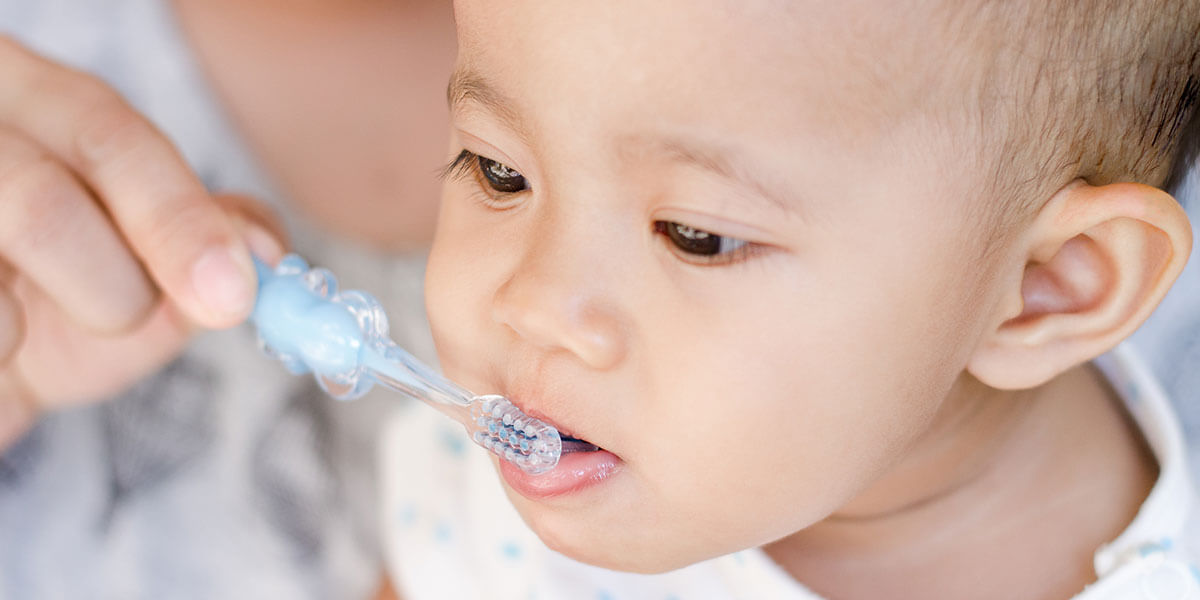
Baby Dental Care: A Comprehensive Guide for Parents
The health of your baby’s teeth is essential for their overall well-being. Baby teeth, also known as primary teeth, play a crucial role in speech development, chewing, and maintaining space for permanent teeth. Proper dental care from infancy can help prevent cavities, gum disease, and other oral health problems that can affect your child’s health and quality of life.
When to Start Baby Dental Care
It’s never too early to start caring for your baby’s teeth. Even before your baby’s first tooth erupts, you can begin by gently wiping their gums with a clean, damp cloth after feedings. This helps remove bacteria and prevents plaque buildup.
First Dental Visit
The American Academy of Pediatrics (AAP) and the American Academy of Pediatric Dentistry (AAPD) recommend that your baby’s first dental visit should occur within six months of their first tooth erupting or by their first birthday, whichever comes first. This early visit allows the dentist to assess your baby’s oral health, provide guidance on proper brushing and flossing techniques, and discuss any potential risks or concerns.
Brushing and Flossing
Once your baby’s first tooth erupts, it’s time to start brushing their teeth twice a day. Use a soft-bristled toothbrush and a small amount of fluoride toothpaste specifically designed for babies. Gently brush the surfaces of all teeth, including the back molars.
Flossing should begin as soon as your baby has two teeth that touch. Use a soft, waxed floss and gently slide it between the teeth to remove plaque and food particles.
Diet and Nutrition
Your baby’s diet plays a significant role in their oral health. Limit sugary drinks and snacks, as these can contribute to tooth decay. Encourage your baby to drink plenty of water and offer them healthy snacks such as fruits, vegetables, and cheese.
Teething
Teething is a normal process that can cause discomfort for your baby. To soothe their sore gums, you can give them a teething ring or cold washcloth to chew on. You can also massage their gums gently with a clean finger.
Pacifiers and Thumb Sucking
Pacifiers and thumb sucking can provide comfort for babies, but prolonged use can lead to dental problems such as misaligned teeth or an overbite. Encourage your baby to stop using a pacifier or sucking their thumb by the age of three.
Dental Emergencies
If your baby experiences a dental emergency, such as a chipped or broken tooth, a knocked-out tooth, or severe pain, seek immediate dental care. Call your dentist or visit the nearest emergency dental clinic.
Common Baby Dental Problems
- Cavities: Cavities are caused by bacteria that feed on sugars in food and drinks. They can lead to tooth decay and pain.
- Gum Disease: Gum disease is an infection of the gums that can cause swelling, bleeding, and pain.
- Toothaches: Toothaches can be caused by cavities, gum disease, or other dental problems.
- Misaligned Teeth: Misaligned teeth can occur due to thumb sucking, pacifier use, or other factors.
- Overbite: An overbite occurs when the upper teeth overlap the lower teeth excessively.
Prevention and Treatment
Regular dental checkups, proper brushing and flossing, and a healthy diet are essential for preventing baby dental problems. If your baby does develop a dental problem, your dentist will recommend the appropriate treatment. Treatment options may include fillings, crowns, or orthodontic appliances.
Importance of Baby Dental Care
Baby dental care is crucial for several reasons:
- Overall Health: Healthy teeth and gums contribute to your baby’s overall health and well-being.
- Speech Development: Baby teeth play a role in speech development, helping your child pronounce words correctly.
- Chewing: Baby teeth are essential for chewing food and maintaining proper nutrition.
- Space Maintenance: Baby teeth hold space for permanent teeth, ensuring proper alignment and preventing overcrowding.
- Self-Esteem: A healthy smile can boost your baby’s self-esteem and confidence.
Conclusion
Baby dental care is an essential part of your child’s overall health and well-being. By following the recommendations outlined in this guide, you can help prevent dental problems, promote healthy teeth and gums, and ensure your baby’s smile stays bright and healthy for years to come. Remember to schedule regular dental checkups, brush and floss your baby’s teeth twice a day, and provide them with a healthy diet. By working together with your dentist, you can give your baby the gift of a lifetime of healthy smiles.
